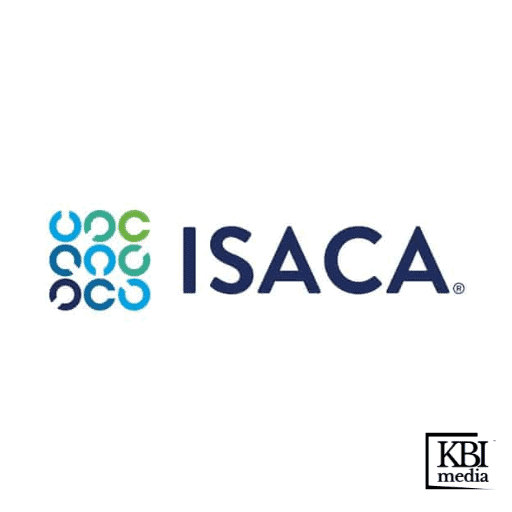Sydney, Australia (10 May 2023)— ISACA has released results from its 2023 annual survey on digital trust, which reveals a significant gap between the importance of digital trust and the organisational changes being implemented to realise this. Only 29 percent of respondents in Australia and New Zealand (ANZ) plan to increase budgets in the next year to achieve digital trust and only 13 percent have a dedicated digital trust role.
The major survey reveals insights from 8,100 global digital trust professionals on digital trust benefits, obstacles, priorities, responsibilities and budgets—with 276 respondents from Australia and New Zealand—and business leaders can see how their organisation measures with ISACA’s State of Digital Trust 2023 survey report.
Jo Stewart-Rattray, ISACA Oceania Ambassador, said digital trust is an absolute priority for organisations moving forward, considering independent assessments on a company’s digital trust practices may become a reality.
“Consumers and stakeholders are increasingly vetting the organisations they partner with based on a company’s ability to protect their data,” said Ms Stewart-Rattray. “ISACA’s survey indicates 66 percent of ANZ respondents believe that it is important for organisations to be independently graded on digital trust practices, with the results available publicly.”
Interestingly, the survey also showed only 22 percent of ANZ organisations measured digital trust among customers and of those that do, the top three methods are customer satisfaction surveys (48 percent), tracking issues raised to customer service (43 percent) and monitoring customer retention (35 percent).
“To maintain a solid reputation and remain competitive, an organisation must continually assess levels of trust among clients and customers, so I would like to see an increase from 22 percent to a much higher number of companies communicating and measuring trust among their customers,” added Ms Stewart-Rattray.
Benefits of Digital Trust
According to ISACA’s State of Digital Trust 2023 survey report, 79 percent of respondents in ANZ say digital trust is important to digital transformation (76 percent globally), but they also report worrisome gaps in several strategic areas including leadership support and staff skills/training.
Organisations with high levels of digital trust can gain tangible benefits and positive business results. Top benefits reported in the 2023 survey are:
- Positive reputation (74 percent vs 67 percent globally)
- Fewer cybersecurity incidents (64 percent vs 56 percent globally)
- Fewer privacy breaches (63 percent vs 56 percent globally)
- More reliable data for decision-making (59 percent vs 57 percent globally)
- Stronger customer loyalty (59 percent vs 55 percent globally)
- Faster innovation due to confidence in their technology and systems (39 percent vs 42 percent globally)
- Higher revenue (27 percent, same globally)
Even with these stated benefits and with 80 percent agreeing that demonstrating a commitment to digital trust will ultimately make organisations more successful, only 18 percent of ANZ respondents say their board of directors has made digital trust a priority.
Sixty eight percent of ANZ respondents say measuring the maturity of digital trust practices is extremely or very important, yet 32 percent of respondents in ANZ do not measure digital trust at all.
Holistic Approach Can Help Reduce Obstacles and Reap Benefits
Security, risk, data integrity, privacy, governance, quality and assurance are listed among the many key components of digital trust, but the survey shows that a unified effort among these siloed areas is lacking. Less than half (49 percent) in ANZ say there is sufficient collaboration among these fields.
In ANZ, just over one quarter (29 percent) are planning to increase budgets for digital trust activities, indicating that digital trust can be implemented as an umbrella approach that encourages existing individual areas to work as a cohesive whole in the most cost-effective way.
“As organisations move to a digital-first business model, trust is the essential component that must be earned before, during and after every interaction,” said Tracey Dedrick, Interim CEO of ISACA. “Digital trust is a holistic, organised approach and offers a new and integrated way for organisations to look at what they are already doing. Digital trust is an umbrella that ensures existing functions are operating in sync and in the most optimal manner to ensure others have trust in the organisation. A digital trust framework that is aligned with enterprise goals is essential and can contribute to impactful positive outcomes.”
“It is critical that boards and the C-suite be closely involved in ensuring digital trust is positioned as a top-tier strategic benefit,” said Dedrick.
Barriers Need to be Addressed
The top obstacles to attaining high levels of digital trust among ANZ respondents are lack of skills/training (52 percent), lack of leadership buy-in (52 percent), lack of alignment of digital trust and enterprise goals (49 percent), lack of budget (47 percent), lack of technological resources (43 percent) and digital trust not seen as a priority (41 percent).
On a positive note, a slight improvement in “lack of skills and training” over the previous year’s survey indicates a gradual increased understanding of the value of digital trust. In 2023, 35 percent understand how their job role contributes to digital trust (30 percent in 2022) and 70 percent say digital trust is relevant to their job (60 percent in 2022). This is trending in a good direction, but it should be accelerated.
Responsibility for Digital Trust
The ANZ respondents did not name one specific job title or role responsible for driving digital trust for every organisation, mainly because each enterprise has its own culture, structure and goals. However, they noted that either the board of directors or senior leadership have ultimate responsibility at their organisation, with 40 percent saying the board of directors is responsible and one third (35 percent) saying that the senior leadership team is responsible. Despite this, only 18 percent say the board of directors has made digital trust a priority. Although in the current landscape, a Chief Digital Trust Officer (or similar) exists at some forward-thinking organisations, the survey found that only 13 percent have a staff position dedicated to digital trust.
“Saying digital trust is a part of everyone’s job is different than saying everybody is responsible for it. This challenge should be entrusted to a leader with the skills to effectively communicate with boards and executives, the knowledge to manage the many moving parts, and the ability to motivate employees to daily excellence,” said Mark Thomas, president of Escoute Consulting and member of ISACA’s Digital Trust Working Group.
Tools for Digital Trust Growth
The pace of digital transformation is increasing as pressures from stakeholders and peers intensify. Digital trust guidance will have a significant impact, as among ANZ respondents, only 17 percent currently use a framework for their digital trust practices while 51 percent believe it is important to have a digital trust framework.
Learn More
The State of Digital Trust 2023 report is available as a free download at www.isaca.org/state-of-digital-trust. To register for a free webinar on the survey results and their implications, visit https://store.isaca.org/s/community-event?id=a334w000005SLDgAAO.
Contact: Karen Keech karen@establishedmedia.com 0411 052 408





